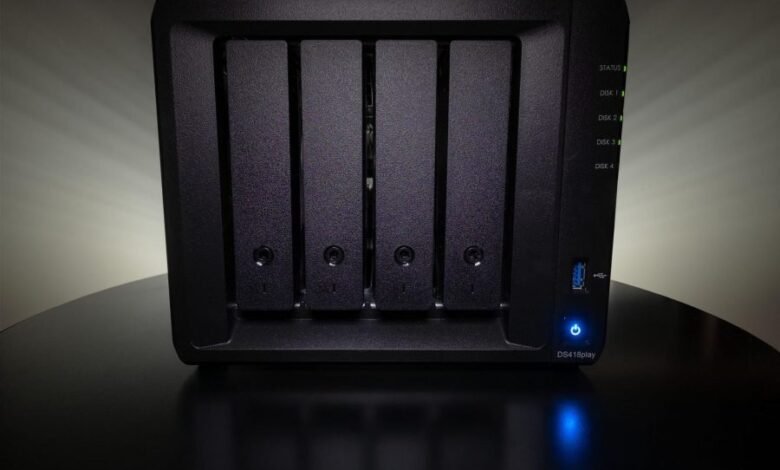Preventing NAS Data Loss in Brisbane: Tips & Guide
Importance of Data Recovery Services in Brisbane

Introduction:
In today’s digital age, data is the lifeblood of businesses and individuals alike. Network Attached Storage (NAS) devices have become increasingly popular for their ability to store and share large amounts of data. However, even with advanced technology, data loss can still occur. This article offers a comprehensive guide on preventing NAS data loss in Brisbane, providing valuable insights and tips.
By implementing these preventive measures, you can protect your data and avoid the need for NAS data recovery services in Brisbane.
Regular Backup Procedures:
One of the most crucial steps in preventing data loss is to establish a regular backup routine. Backing up your NAS data ensures that even if your device fails, you still have a copy of your important files. Utilize backup solutions compatible with your NAS device and schedule frequent backups to an external storage device or cloud-based storage.
Utilize Redundancy Options:
Many NAS systems offer redundancy options, such as RAID (Redundant Array of Independent Disks), to protect against data loss. By spreading data across multiple drives, RAID configurations provide fault tolerance. Choose a reliable RAID level suited to your needs, such as RAID 1 (mirroring) or RAID 5 (striping with parity), to safeguard your data.
Ensure Proper Cooling and Ventilation:
Heat can be detrimental to the lifespan and functionality of NAS devices. Ensure your NAS unit is located in a well-ventilated area and free from excessive dust. Regularly clean the vents and use cooling fans or air conditioning to maintain optimal operating temperatures. Overheating can lead to hardware failures and potential data loss.
Conduct Regular System Updates:
Regularly updating your NAS device’s firmware and software is essential to address security vulnerabilities and improve system stability. Keep an eye on the manufacturer’s website for updates, as they may release patches that can prevent data loss caused by software bugs or security breaches.
Protect from Power Surges and Outages:
Power fluctuations, surges, and outages pose a significant risk to your NAS data. Install a surge protector or uninterruptible power supply (UPS) to safeguard your NAS device from sudden power spikes or complete power loss. This precautionary measure can prevent data corruption or hardware damage.
Implement Strong Passwords and User Permissions:
Securing your NAS device with strong passwords and properly configured user permissions can help prevent unauthorized access or accidental deletion of data. Enforce the use of complex passwords and regularly change them to enhance security. Grant users appropriate access rights to minimize the risk of accidental data deletion or modification.
Regularly Monitor and Analyze Log Files:
Monitor the log files generated by your NAS device to identify any suspicious activities or potential issues. Analyzing log files can help you spot unusual patterns, track errors, and detect potential hardware failures or software malfunctions. Regularly reviewing these logs can aid in preventing data loss by addressing issues promptly.
Educate Users on Data Management Best Practices:
Ensure that all users accessing the NAS device are aware of data management best practices. Train them on proper file organization, correct saving procedures, and the importance of regular backups. Educating users on data protection measures and potential risks can significantly reduce the chances of accidental data loss.
Implement Robust Firewall and Antivirus Protection:
Protect your NAS data from external threats by implementing a robust firewall and antivirus solution. Configure your NAS device’s built-in firewall or set up a separate hardware firewall to monitor and control network traffic. Regularly update and run antivirus scans to detect and eliminate potential malware threats that could compromise your data.
Regularly Test Data Restoration:
Periodically test the restoration process from your backups to ensure that your data is recoverable. Verify the integrity of your backups and confirm that the restoration process is functional. Performing these tests on a regular basis ensures that you can restore data swiftly in case of an unforeseen event.
Read Also: Understanding NAS Data Recovery in Brisbane: A Comprehensive Guide
Conclusion:
Preventing data loss on NAS devices in Brisbane requires a proactive and multifaceted approach. By implementing these tips and best practices, you can significantly reduce the risk of data loss and potential downtime. Regular backups, redundancy options, preventive maintenance, and user education are crucial steps in protecting your data. Remember, prevention is always better than seeking NAS data recovery services in Brisbane. Safeguard your valuable data and ensure its availability when you need it most.



